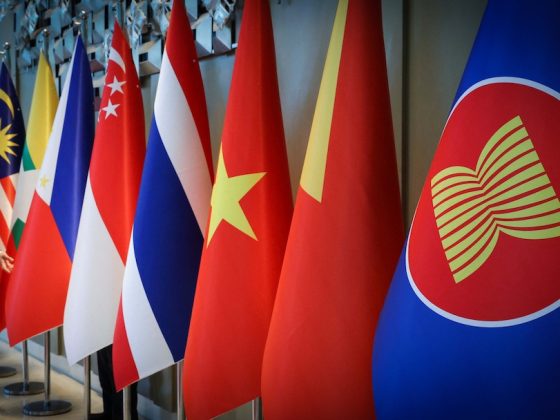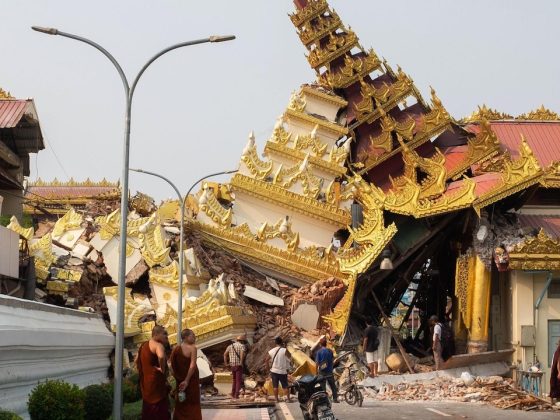Join us at GoSwifties.com
International concert tours are complex systems of logistics, creativity, and cultural acumen. It is a world where the glamour of the stage meets the rigorous demands of global travel and multicultural interaction. Behind the scenes of these spectacular shows lies a complex ecosystem of production, administration, and operation, each a critical cog in the wheel of a successful tour. At the heart of this endeavour is a meticulous blend of technical finesse, legal savvy, and strategic coordination.

From the perspective of production, teams face the challenge of adapting to diverse technical standards and equipment availability across countries. They orchestrate the transformation of a stage through innovative design, sound, lighting, and special effects. The seamless transportation and logistics of equipment, crew, and artists across international borders is a masterclass in precision, dealing with the intricacies of customs and shipping regulations to ensure the timely setup at each venue. Moreover, the art of venue coordination and crew management requires not only technical expertise but also a sensitivity to language barriers and cultural nuances.
1. Technical Requirements.
This includes stage design, sound, lighting, special effects, and any unique technical needs of the show. Consideration for local technical standards and equipment availability in different countries is crucial.
2. Transportation And Logistics.
Organising the transportation of equipment, crew, and the artist(s) across international borders. This involves dealing with customs, shipping regulations, and ensuring timely arrival at each location.
3. Venue Coordination.
Working with local venue staff to ensure that all technical and practical needs are met, including stage setup, sound checks, and technical rehearsals.
4. Crew Management.
Hiring and managing a skilled crew, including sound and lighting technicians, stage managers, and general support staff. Language barriers and cultural differences in the work environment must be considered.
The administrative aspect is no less daunting. It encompasses ensuring legal compliance with the varied laws and regulations of each country, including navigating the complexities of work permits, insurance, and taxation. Contract negotiation demands a keen understanding of local legalities and business practices. Financial management becomes a multi-currency affair, balancing budgets, cash flows, and the economic pulse of different regions. And amidst all this, tour scheduling must align the artist’s professional commitments with their need for rest and local engagement, a delicate balance of time and energy.
1. Legal Compliance.
Ensuring compliance with local laws and regulations in each country, including work permits, insurance, and tax obligations.
2. Contract Negotiation.
This includes contracts with venues, local promoters, suppliers, and any other service providers. Contracts must reflect local legal requirements and business practices.
3. Financial Management.
Budgeting for the tour, managing cash flow, currency exchanges, and keeping track of expenses and revenues in multiple currencies.
4. Tour Scheduling.
Balancing the artist's commitments, travel time, rest periods, and local events like press conferences or promotional appearances.
On the operational front, the paramount concern is safety and security, not just for the artist and crew but also for the audience. This involves close collaboration with local security firms and a deep understanding of regional security challenges. Crowd management, a critical aspect of any large event, requires meticulous planning and execution to ensure a safe and enjoyable experience for every attendee. The operation also extends to managing local staffing and resources, ensuring cultural sensitivity to resonate with diverse audiences, and establishing effective communication channels for real-time problem-solving. Additionally, addressing the health and well-being of everyone involved, especially across different international contexts, adds another layer of complexity.
1. Safety And Security.
Ensuring the safety of the artist, crew, and audience. This includes coordinating with local security firms and understanding regional security concerns.
2. Crowd Management.
Working with venues to manage audience flow, emergency procedures, and overall crowd control.
3. Local Staffing And Resources.
Hiring local staff or working with local companies for services like catering, transportation, and accommodation.
4. Cultural Sensitivity.
Understanding and respecting local cultures, customs, and audience expectations in different countries.
5. Communication.
Establishing effective communication channels within the tour team and with local partners, which is crucial for addressing challenges and changes in real-time.
6. Health And Wellbeing.
Ensuring access to healthcare and addressing the physical and mental health needs of the touring party, which can be a challenge in different international contexts.
Supporting these interdisciplinary operations are key roles that form the social and professional stage by which any performer or celebrity must step through to reach the artistic heights they aim to achieve.
1. Tour Manager.
Oversees the entire operation, ensuring that all aspects of the tour run smoothly.
2. Production Team.
Handles technical aspects, including stage design and sound.
3. Logistics Coordinator.
Manages transportation and customs clearance for equipment.
4. Financial Controller.
Manages the tour’s finances, budgeting, and accounting.
5. Legal Advisor.
Ensures compliance with international laws and handles contract negotiations.
6. PR And Marketing Team.
Handles promotion, media relations, and fan engagement across different regions.
7. Security Team.
Focuses on the safety of the artist, crew, and audience.
Each facet of organising an international concert tour is a testament to the power of meticulous planning, adaptable strategies, and the ability to tackle unexpected challenges with innovative solutions. It’s a journey that transcends mere entertainment, weaving together a composition of cultural exchange, artistic expression, and operational excellence.
Originally published at: GoSwifties.com









